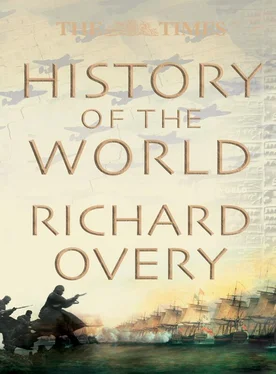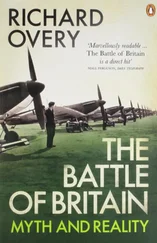The formal acquisition of scientific, material knowledge about all aspects of the natural world and its application to human societies has been responsible for transforming world history more fundamentally than any other development in the past 6,000 years. Whatever case can be made for showing that there are strong lines of continuity throughout world history, the possibilities opened up by transcending the narrow world view of a God-centred and God-given universe have been unprecedented. It is a story intimately bound to the wider history of the rise of Europe (which with European expansion to America came to be regarded as the Western world) over the past 500 years. Historians have often been tempted to see this is as a happily progressive narrative while the rest of the world stagnated. From a Western perspective the idea of ‘the triumph of the West’ has an evident plausibility. Yet it begs the larger question of why Europe did evolve in very different ways, not only from the other civilizations existing alongside, but from all previous civilizations. What has been distinctive about the West, as Karl Marx argued in the mid-19th century, is the fact that it proved capable of expanding world-wide; Marx thought that no other culture or civilization would be capable of withstanding what Europe had to offer or what it forced upon them.
There is no agreed or straightforward answer to the question ‘why Europe?’ Geography was clearly favourable—a temperate climate, generally adequate food supplies, population growth steady but not excessively large, few of the debilitating, parasite-borne diseases that affected large parts of Africa and Asia with elephantiasis, river-blindness, bilharzia or malaria. The long European shoreline, never very far from any human habitation, encouraged the development of seaborne trade and exploration and the development of early sea power. Seafaring technology was one of the earliest and most important of the technical revolutions and Europeans exploited it fully. Europe also succeeded in stemming the tide of regular invasion which had characterized European history for almost a thousand years from the collapse of the Western Roman Empire. The Tatar invasions of the 13th century and the expansion of the Ottoman Turkish Empire into south-eastern Europe during the early modern period were checked sufficiently to allow central and western Europe to consolidate the state system, to build a settled network of cities, and a regular trading network. The military organization of Europe was transformed by the application of gunpowder and the development of cannon and musket-fire. Although these innovations were usually used against other Europeans, they gave Europeans a clear advantage whenever they found themselves fighting non-European peoples. It is sometimes argued that post-Reformation Protestantism, with its emphasis on individualism, played an important part in making Europe different, but the earliest explorers and imperialists were Catholic Portuguese and Spanish, while the Americas were discovered by an Italian from Genoa, Cristoforo Colombo. The long history of the Crusades against the Arab Middle East showed that there was nothing passive about Catholic Christianity.
The distinctive characteristic of European societies as they solidified into an early version of the modern states’ system was their willingness to look outwards towards the wider world. The voyages of discovery were not isolated examples of a lucky piece of exploration, but rapidly embraced the whole globe, making it clear in the process that the earth was round rather than flat. Only Europeans embraced the world in this way: map-making, navigation, inland exploration, elaborate descriptions of native communities and exotic fauna and flora, all contributed to creating a view of the world fundamentally different from the view from Constantinople or Beijing. Not only did Europeans discover large areas of the hitherto unknown (at least to Europeans) but they began a process of aggressive settlement across the Americas, in parts of Africa and India and into the archipelagos of the western Pacific ‘spice islands’. If occasionally briefly reversed, European expansion proved irresistible and European appetites insatiable. The Spanish conquistador Hernán Cortés captured the Aztec capital Tenochtitlán in 1520 with 300 Spanish troops and some local allies aided by the fact that around half the city’s 300,000 inhabitants had died of imported smallpox. Once the imperial toeholds were established across the oceans, Europeans never abandoned them. They became a source of remarkable wealth, helping eventually to make Europe richer than any rival civilization, and making it possible to defend and extend the imperial frontier.
Wealth itself would not have made Europe distinctive. The rulers of China and India were fabulously rich. What made the difference was how that wealth was used. The application of rational organization and scientific technique made possible a remarkable economic revolution. An important fraction of the wealth generated in Europe was mobile wealth, mobilized to develop yet further wealth by banks and commercial houses, which developed across Europe from the late 17th century. This was the engine that made commercial capitalism possible and it was fuelled by an acquisitive urge that was subject to few customary or religious restrictions. From the late 18th century the mobile wealth was used to fund a second revolution of technique. Although inventiveness was nothing strictly European—Chinese scientists and engineers had anticipated many European discoveries, including gunpowder—the critical difference was the application of invention. The development of steam technology in Britain made possible the mobilization of new and efficient forms of energy quite distinct from the water or horse-powered technologies of other cultures. The development of gas and later generated electricity as an energy source, the mastery of turbine technology, the perfection of rail locomotion, were all uniquely Western, a blend of European and American innovation. In a mere hundred years the gap between Western technique and the rest of the world was unbridgeable, making possible the rapid expansion of European states as imperial powers. The British American colonies won their independence in 1783, and European settlers, enjoying the same technical advantages and territorial ambitions, occupied the whole area of North America between Mexico and Canada by the middle years of the 19th century.
The economic and technical revolutions relied on a high level of social and spatial mobility. Europeans moved abroad in large numbers, bringing with them Christianity, guns, and trade. In western Europe there were few barriers to social mobility, allowing new classes of successful bankers, merchants and manufacturers to play an influential part in public affairs. The establishment of secure property rights and respect for individual wealth-making removed any legal inhibitions on the right to make money. The publication of Adam Smith’s classic The Wealth of Nations in 1776 provided a sound intellectual basis for the claim that the interests of communities were best served by allowing the free play of market forces and individual pursuit of economic well-being. Economic individualism and belief in the benign concept of the market had no equivalent in other cultures. Internal mobility was also important. The new industries attracted large numbers of rural workers who were no longer tied to the soil, at least in western Europe. Rapid population growth from the late 18th century, which threatened to put a severe strain on food supplies, was absorbed into the new cities; at the same time rising agricultural yields and the application of modern techniques (fertiliser cycles, threshing machines, stock breeding) made it just possible for the mobile urban population to be fed. The new wealth could then be used to fund overseas food production and imported foodstuffs. In 1877 the first refrigerated food was carried on board ship between Argentina and France making it possible to bring meat and fruit half-way across the world.
Читать дальше










